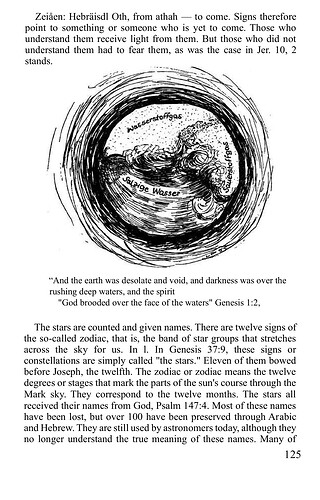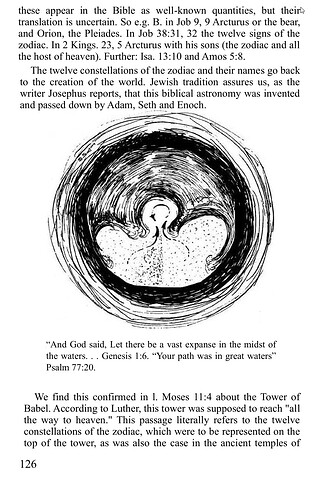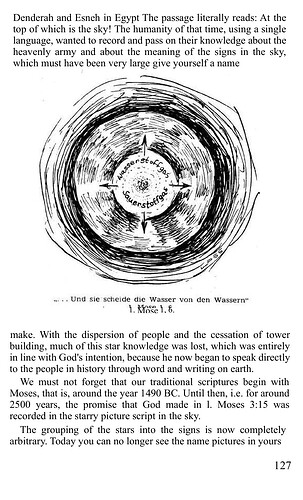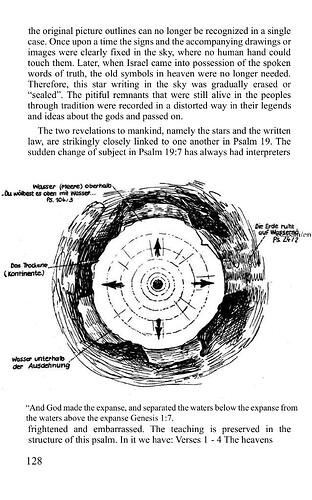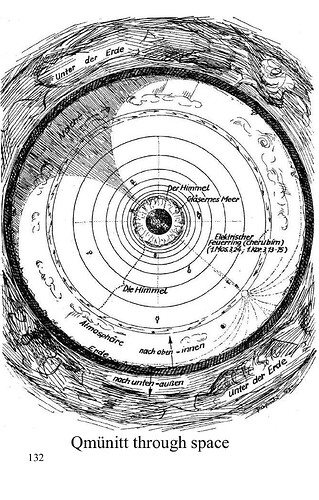The Three-Story Universe of the Bible by Fritz Braun - Translated to English
Download the book
Fritz-Braun-The-three-story-universe-of-the-Bible-English-Auto-Translation.pdf (2.1 MB)
Overview
The Three-Story Universe of the Bible by Fritz Braun presents a deeply theological and philosophical analysis of the Bible’s cosmological perspective, advocating for a universe structured in three tiers: heaven, earth, and the underworld. Published originally in German, the book intertwines biblical literalism, critique of modern science, and reflections on humanity’s spiritual journey. Braun defends a biblical geocentric worldview and challenges the Copernican and modern scientific perspectives, asserting that they obscure spiritual truths and deviate from divine revelation.
Braun’s work is a call to re-examine humanity’s place in the cosmos through the lens of scripture and faith, offering an alternative to the dominant scientific worldview. The book is designed for those seeking to reconcile their faith with cosmology, encouraging a return to biblical foundations.
Structure and Content
1. Introduction and Prefaces
The book begins with a series of prefaces that outline its purpose: to defend the biblical worldview against the encroachment of modern science. Braun warns of the spiritual consequences of abandoning scripture’s cosmological teachings and frames the discussion as a battle between divine truth and secular deception.
2. The Cosmic Attack on God’s Word
Braun critiques the shift from the Ptolemaic to the Copernican worldview, describing it as a deliberate attack on the Bible’s authority. He explores how this shift led to the rejection of the biblical cosmos and paved the way for a secular, materialistic perspective.
3. God’s Word About Creation
This section examines the Bible’s descriptions of the universe, emphasizing its three-tiered structure:
- Heaven (Upper Floor): A realm of divine beings and celestial phenomena.
- Earth (Middle Floor): The domain of humanity.
- Underworld (Lower Floor): A place of darkness and fire.
4. The Role of Light and Perception
Braun delves into the biblical significance of light, contrasting its divine nature with its physical properties. He critiques scientific interpretations of light and space, emphasizing their spiritual implications.
5. Science as a Religion
The book challenges the authority of modern science, labeling it as a form of idolatry and self-redemption. Braun argues that true understanding comes from scripture, not human intellect.
6. The Dangerous Testimony
This chapter discusses historical figures and theological movements that have challenged biblical literalism. Braun critiques their attempts to reconcile science with scripture, emphasizing the need for unwavering faith in God’s Word.
7. The Supernatural Answer
Braun concludes by affirming the Bible’s cosmological truths as a means to spiritual enlightenment. He calls for a return to the simplicity and depth of biblical faith, advocating for a worldview centered on God’s revealed plan.
Key Themes and Insights
- Biblical Literalism: The book asserts the inerrancy of the Bible, particularly in its cosmological descriptions.
- Critique of Science: Braun challenges the assumptions and conclusions of modern science, viewing them as spiritually destructive.
- Three-Tiered Universe: The concept of a structured cosmos reflects divine order and purpose.
- Spiritual Implications: Abandoning the biblical worldview, according to Braun, leads to moral and spiritual decay.
- Faith vs. Reason: The book explores the tension between faith in divine revelation and reliance on human reasoning.
Chapter Summaries
Chapter 1: Introduction and Prefaces
Braun introduces the purpose of his book: to reaffirm the biblical worldview and defend it against modern science. He critiques the tendency of Christians to compromise their faith by adopting secular interpretations of the universe. The prefaces emphasize the importance of maintaining fidelity to scripture in the face of scientific and cultural challenges.
Chapter 2: The Cosmic Attack on God’s Word
This chapter details the historical transition from a geocentric to a heliocentric worldview, portraying it as a deliberate rejection of biblical truth. Braun argues that this shift has undermined the authority of scripture and led humanity away from God. He highlights the spiritual dangers of adopting a secular cosmology.
Chapter 3: God’s Word About Creation
Braun explores the Bible’s depiction of the universe, focusing on its three-tiered structure. He describes the heavens as a divine realm, the earth as humanity’s dwelling place, and the underworld as a realm of judgment and separation from God. The chapter emphasizes the coherence and simplicity of the biblical model.
Chapter 4: The Role of Light and Perception
This chapter examines the biblical significance of light as both a physical and spiritual phenomenon. Braun critiques the scientific understanding of light and its role in the universe, arguing that it fails to capture the divine reality. He discusses how light functions within the three-tiered cosmos.
Chapter 5: Science as a Religion
Braun critiques modern science as a secular religion that opposes divine revelation. He describes it as a system of self-redemption that elevates human intellect above God’s wisdom. The chapter calls for a rejection of scientific materialism in favor of faith-based understanding.
Chapter 6: The Dangerous Testimony
This chapter addresses historical and contemporary challenges to biblical literalism. Braun critiques theological movements that attempt to reconcile science with scripture, arguing that they dilute the Bible’s authority. He emphasizes the importance of adhering to the literal meaning of God’s Word.
Chapter 7: The Supernatural Answer
The final chapter affirms the sufficiency of scripture in answering humanity’s deepest questions. Braun calls for a return to biblical faith and a rejection of secular worldviews. He concludes with a vision of the cosmos as a testament to God’s glory and wisdom.
Pictures from the book
Conclusion
The Three-Story Universe of the Bible is a passionate defense of biblical cosmology, challenging readers to reconsider their assumptions about the universe and their place within it. Fritz Braun’s work invites believers to embrace a worldview rooted in scripture, offering a profound exploration of faith, science, and the nature of reality.
